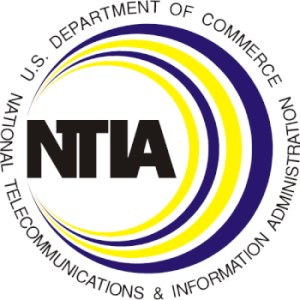Artificial Intelligence is reshaping the broadband industry by optimizing network performance, personalizing customer interactions, and strengthening cybersecurity defenses, ensuring that
AGL Information and Technology is a progressive digital platform that provides insights into broadband, infrastructure, federal programs, AI, and technology ecosystems. AGL offers actionable intelligence and innovative developments, setting it apart from conventional news sources. Rich Biby, CEO, AGL Information and Technology
- AGL Info Tech Headline News
Broadband News
Dive deeper into the latest advancements, challenges, and opportunities in the Broadband sector, including updates on policy, infrastructure, and technological innovation. Explore more here: Broadband News & Information
Wi-Fi 7: Advancing Indoor Connectivity Amid Spectrum Management Challenges
While Everyone Talks AI, the Big Story May Really be APIs
Is AI the Killer 5G App?
Wi-Fi 7 introduces groundbreaking features like wider channel bandwidths and Multi-Link Operation, promising unprecedented wireless performance. However, its reliance on
Things like reconfigurable intelligent surfaces (RIS), are probably the most exciting thing about 6G, plus new extreme coding and transmission
You can stay updated on key developments in Infrastructure by reading more here: Infrastructure News & Information.

As the U.S. races to modernize its infrastructure through historic federal investments, sourcing requirements tied to domestic manufacturing create friction. While designed to support American industry and national security, these

As enterprises prioritize agility and cost-efficiency, adoption of cloud-based infrastructure is accelerating. This transformation enables improved system management, seamless scalability, and a foundational layer for digital innovation. However, does the

In a sweeping national security initiative, the United States continues its campaign to remove Chinese telecom companies such as Huawei and ZTE from domestic communications infrastructure. While driven by espionage

In a unified move to preserve essential rural connectivity, the U.S. House of Representatives has passed a bipartisan resolution calling on Congress to protect rural broadband and telecommunications services. The
You can stay informed on the latest developments in Federal Programs by exploring more here: Federal Programs News & Information

In a pivotal session, the United States Supreme Court signaled its inclination to uphold the Federal Communications Commission’s (FCC) $8 billion annual Universal Service Fund

Consumer advocacy groups and labor unions are urging the Federal Communications Commission (FCC) to reject T-Mobile’s proposed $4.4 billion acquisition of UScellular, citing concerns over

The Supreme Court is set to hear arguments in FCC v. Consumers’ Research, a case challenging the constitutionality of the Federal Communications Commission’s (FCC) authority

The Federal Communications Commission (FCC) has launched an investigation into nine Chinese technology and telecommunications companies, including Huawei Technologies and ZTE, to assess whether they
NTIA BEAD News
Learn more about the NTIA BEAD Program and its impact on broadband expansion here. NTIA BEAD Program News & Information

The Economic Impact of the NTIA BEAD Program Across the Country
The BEAD program provided $42.45 billion in federal funding to all 56 states and territories (Eligible Entities) for broadband infrastructure deployment and adoption. NTIA allocated these funds among the Eligible

Texas Considers Returning $1 Billion in BEAD Funds Amid Successful Broadband Expansion
Texas is considering returning $1 billion of its $3.3 billion BEAD allocation due to successful state and private sector broadband expansions. This move highlights the need for flexible federal funding

Understanding the Impact of BABA Regulations on NTIA’s BEAD Program
The Build America Buy America (BABA) Act mandates the use of American-made materials in federally funded projects, significantly impacting the NTIA’s Broadband Equity, Access, and Deployment (BEAD) program. This requirement
Explore the latest technological advancements and innovations by reading more here: Technology New & Information

Artificial Intelligence is reshaping the broadband industry by optimizing network performance, personalizing customer interactions, and strengthening cybersecurity defenses, ensuring that providers can meet the growing

The 10G platform, underpinned by DOCSIS 4.0 technology, is set to revolutionize broadband connectivity by offering multi-gigabit symmetrical speeds and enhanced network reliability. As industry

Wi-Fi 7 introduces groundbreaking features like wider channel bandwidths and Multi-Link Operation, promising unprecedented wireless performance. However, its reliance on the 6 GHz spectrum presents
Things like reconfigurable intelligent surfaces (RIS), are probably the most exciting thing about 6G, plus new extreme coding and transmission schemes.
Discover the latest insights and trends in AI and Machine Learning by exploring more articles here: AI/MI/ML News & Information.

Recent advancements in artificial intelligence have led to the development of models exhibiting behaviors akin to human deception. These AI systems, designed to process and

AI coupled with 5G will profoundly enhance industry efforts in the future in the areas of autonomous vehicles, industrial automation, remote surgery and empowering IoT

OpenAI is developing advanced AI agents capable of performing PhD-level research, with operational costs potentially reaching $20,000 per month. These agents are designed to autonomously

Google has announced its largest acquisition to date, agreeing to purchase cybersecurity firm Wiz for $32 billion.This strategic move aims to bolster Google’s cloud security
Success flourishes in the soil of creativity, not in the shadow of replication!











